Unlock the power of grammatical agreement
Description: Discover how you can use automatic grammatical agreement in your apps and games to create inclusive and more natural-sounding expressions. We’ll share best practices for working with Foundation, showcase examples in multiple languages, and demonstrate how to use these APIs to enhance the user experience for your apps. For an introduction to automatic grammatical agreement, watch “What's new in Foundation” from WWDC21.
Grammatical agreement
- Use
^[Bienvenido](inflect: true) a tu iPhoneto provide automatic inflection (in supported languages like Spanish, French, or Italian) - New locales added: European Portuguese and German
Dependency agreement
- New API on localization options named
conceptsto pass a distinct string to another string which are related (e.g. ingredients of a food)
var options = AttributedString.LocalizationOptions()
options.concepts = [.localizedPhrase(food.localizedName)]
let size = AttributedString(localized: "small", options: options)
- To choose the concept, provide a 1-indexed value like in
^pequeno](agreeWithConcept: 1) - The new
agreeWithConceptoption can be used even in older OS versions – it'll be ignored in them
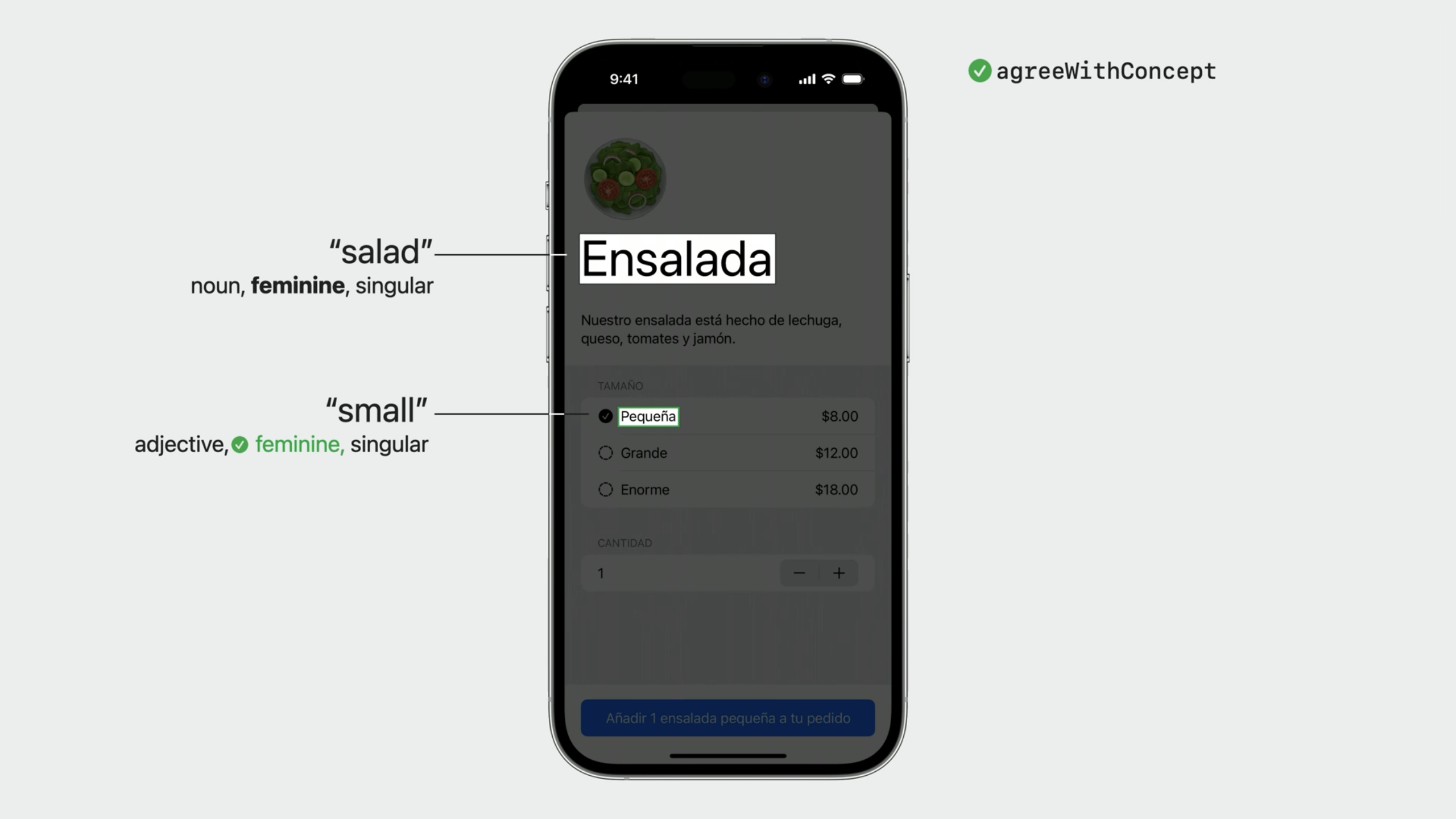
- When multiple inflections in one text needed but only one gets
%@argument passed, use newagreeWithArgument: 1instead on other
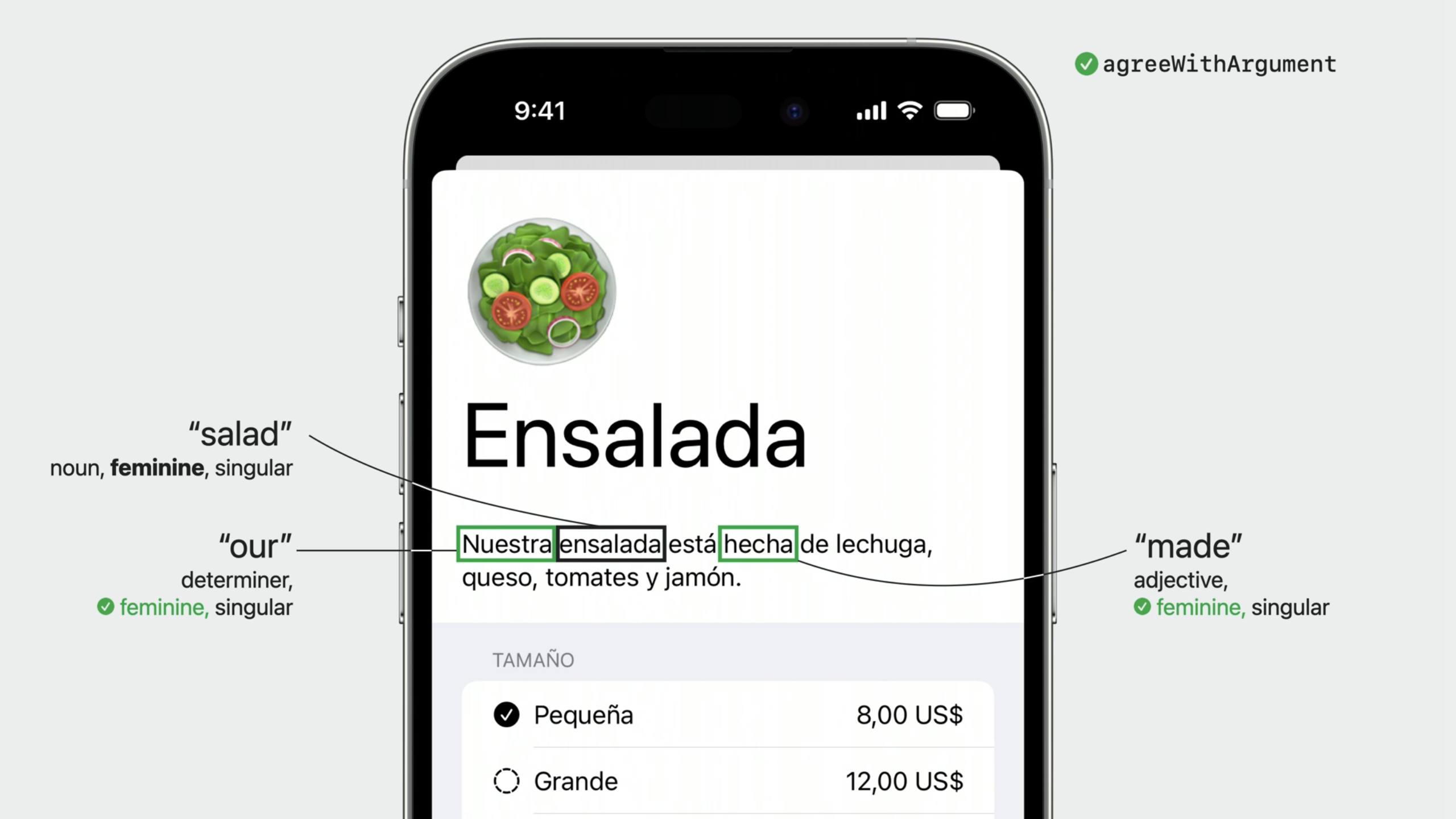
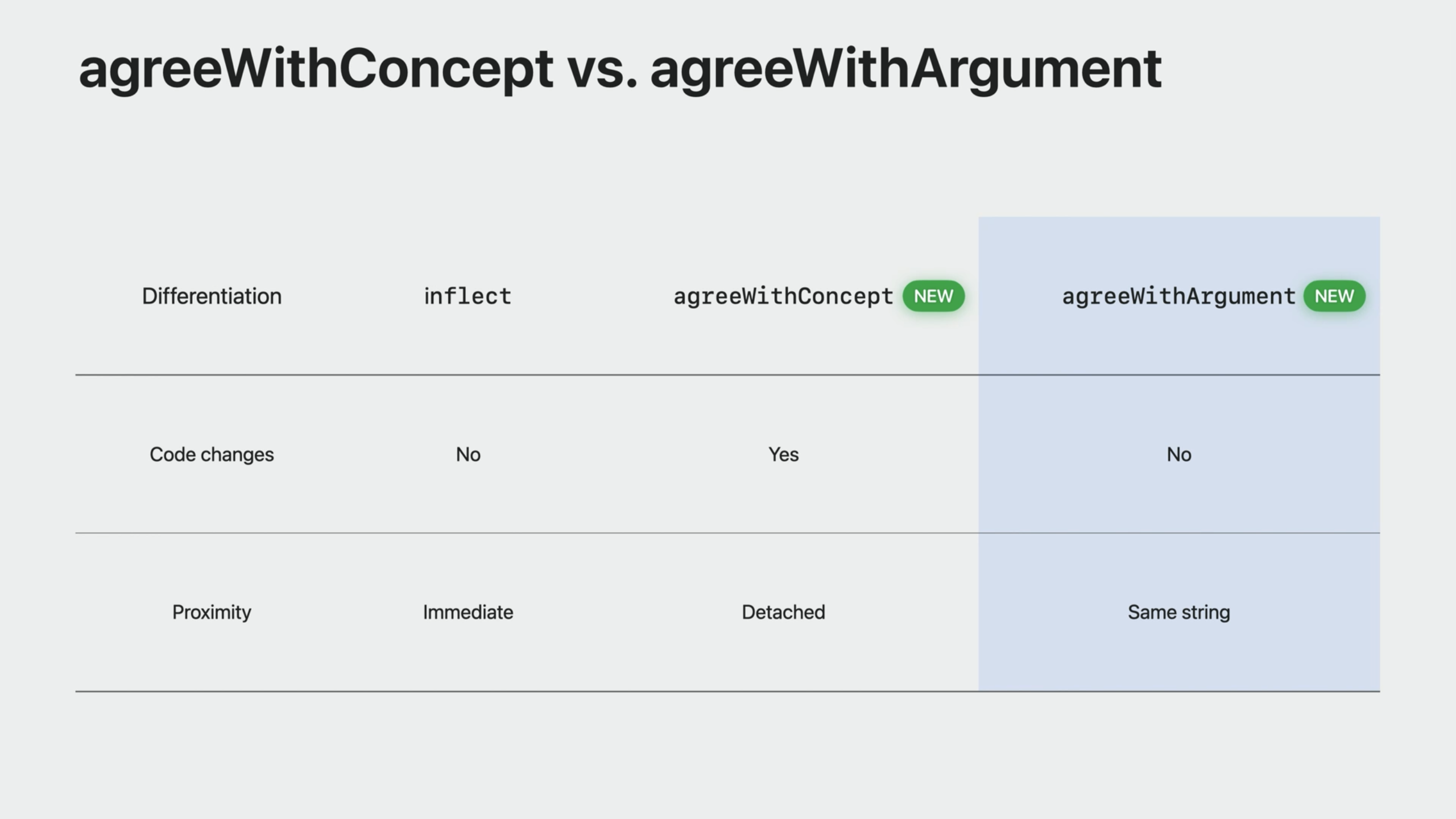
- To make demonstrative adjectives grammatically agree in French, use
^[Ce %@](inflect: true) conteient : %@.
Inclusive language
- New type
TermOfAddressfor.masculine,.feminine, or.neutral– can be passed as localization option in.conceptsarray
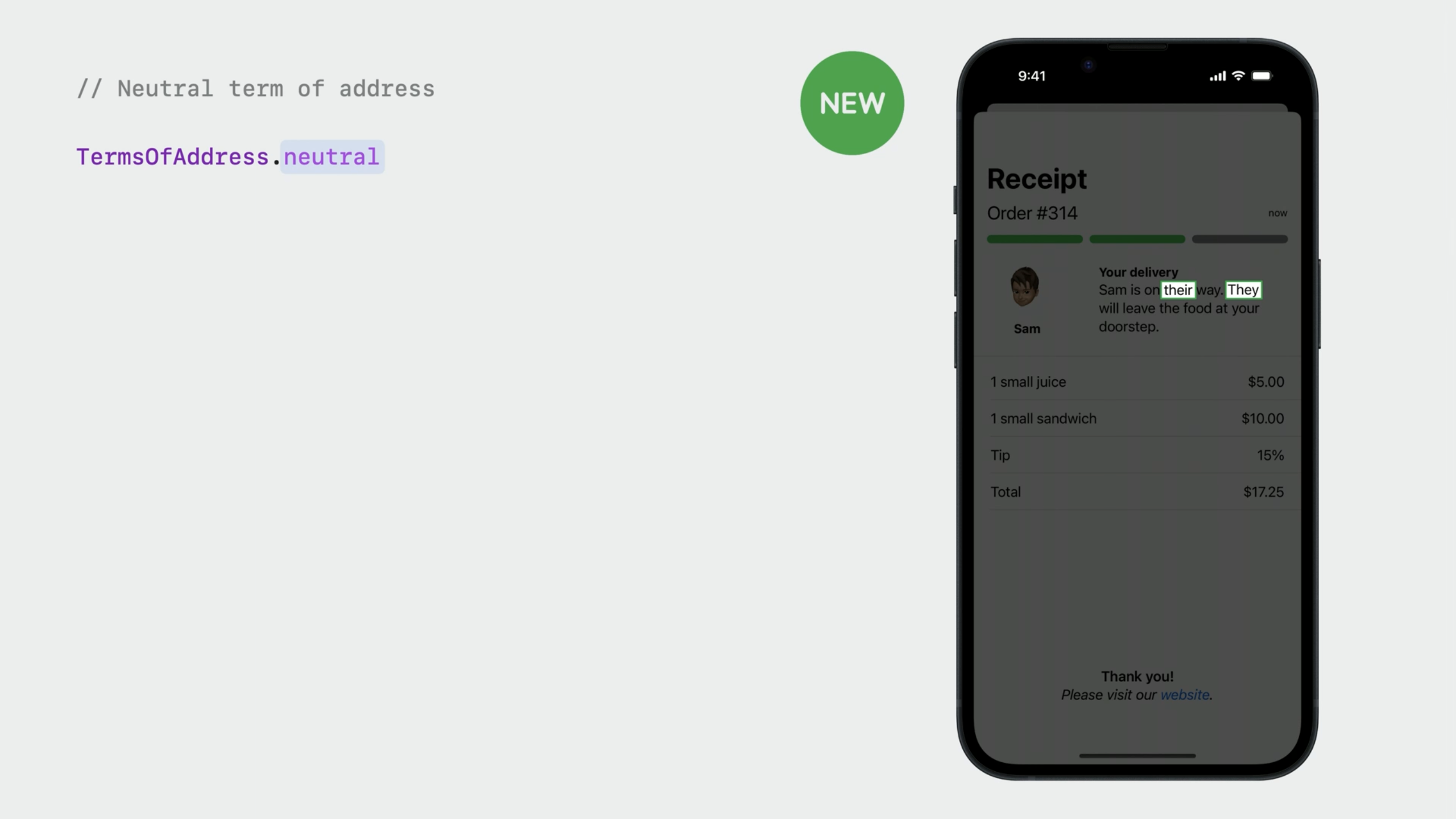
- New
referenceConceptattribute in agreement, like"\(person.name) is on ^[their](referentConcept: 1) way." - You can provide custom
TermOfAddressusingTermOfAddress.localized(language:pronouns:)and pass array ofMophology.Pronoun
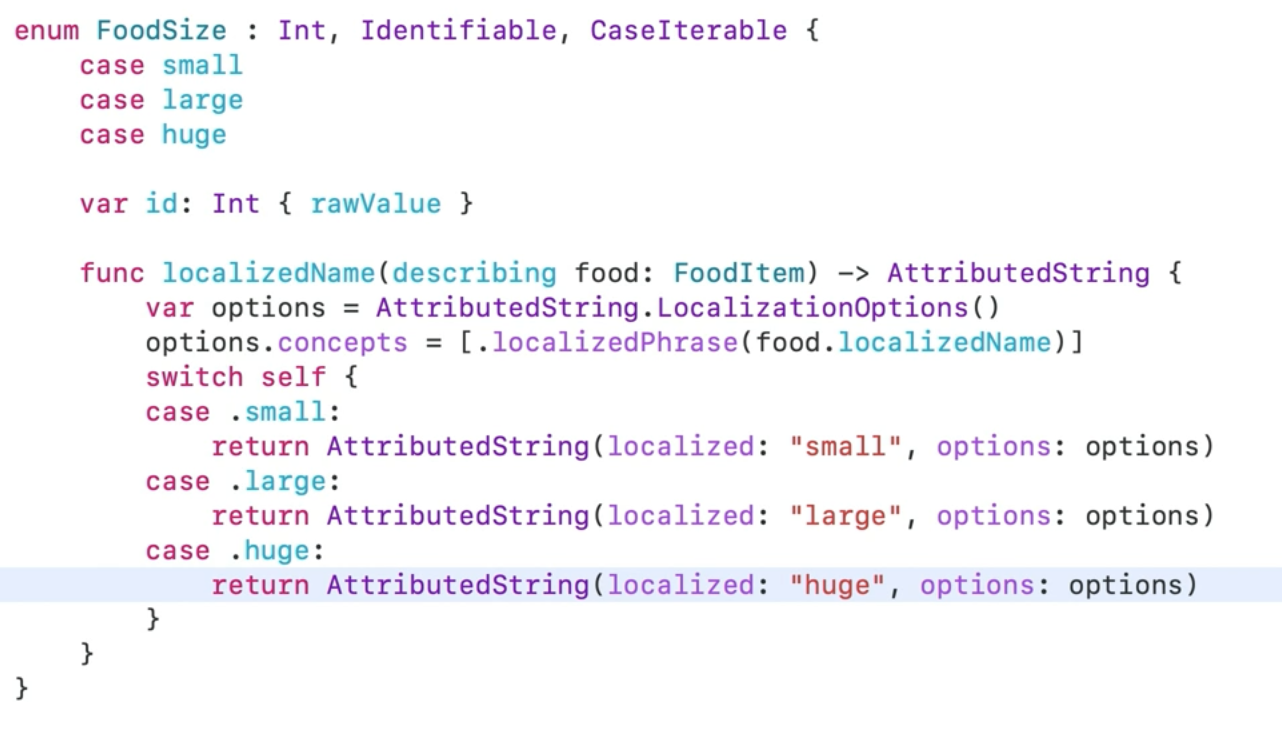
 Twitter
Twitter
 GitHub
GitHub
 fline.dev
fline.dev